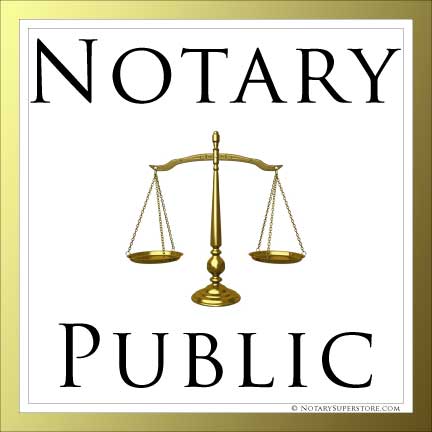Apostille Refine Explained: Improving International File Confirmation
Wiki Article
Demystifying Notarial Job: Simplifying the Role and Value of Notaries
In the elaborate internet of lawful documentation and verification, notaries stand as columns of guarantee and credibility. Their duty, typically shrouded in enigma for many, lugs considerable weight in guaranteeing the credibility and stability of vital documents. As guardians of legality and reality, notaries play a critical part in our culture, yet their job is not always completely comprehended. By unwinding the intricacies bordering notarial methods and dropping light on the importance of their acts, a more clear understanding arises of the vital function notaries play in promoting the fabric of legal and legal contracts.The History of Notarial Work
Just how did notarial work develop with time to end up being an essential part of lawful and business transactions? The history of notarial work go back to ancient worlds, where scribes played a critical role in recording important details and authenticating documents. As societies progressed, the requirement for an extra formalized system to make certain the validity of agreements developed. This resulted in the growth of notaries, people selected by the state to act as impartial witnesses in lawful issues.
During the Center Ages, notaries acquired importance in Europe, with their functions increasing to consist of preparing lawful papers, certifying signatures, and maintaining records. The surge of global trade better highlighted the relevance of notarial work in verifying contracts and arrangements across borders.
In the modern-day era, notaries remain to play a crucial duty in legal and organization transactions by verifying identities, confirming the authenticity of documents, and preventing fraud. Their role in licensing the credibility of contracts includes a layer of security and count on to the ever-evolving landscape of commerce and law.

Obligations and Responsibilities of Notaries
Notaries play a vital function in validating the credibility of documents and the identification of notaries. One of their main responsibilities is to witness the signing of crucial documents, such as agreements, acts, and wills, to ensure that all celebrations are entering into arrangements knowingly and voluntarily.They certify copies of initial records, offering assurance to institutions that the copies are true reproductions of the originals. Generally, the tasks and responsibilities of notaries are essential in guarding the stability and legitimacy of different papers and deals - Notary.
Notarial Certificates and Signatures
Exemplifying thorough focus to information, notarial certifications and signatures work as essential parts in validating the credibility of legal documents. Notarial certificates commonly have crucial details such as the day of registration, the names of the signatories, a description of the file, and the notary's official seal. These certifications offer a clear document of the notarial act, ensuring that the paper can be conveniently identified and traced back to the notary who looked after the process.Signatures play a critical function in notarial job, as they indicate the agreement and approval of the parties involved. Notaries carefully witness the finalizing of files to validate the identity of the notaries and verify that they are authorizing of their own free will. By fastening their official seal and signature to the paper, notaries certify that the essential procedures have been complied with which the record is legitimate and enforceable.
Basically, notarial certifications and trademarks are the characteristic of credibility in lawful purchases, giving guarantee to all celebrations included that the documents are genuine and binding.
Significance of Notarial Acts

Notarization Process Clarified
The notarization procedure normally starts with the individual presenting the record to a notary public. Once the identity is confirmed, the notary makes certain that the private signing the record does so voluntarily and without any browbeating.
Final Thought

Notarial certifications commonly have crucial information such as the day of registration, the names of the signatories, a description of the document, and DIRCO the notary's main seal. These certificates supply a clear document of the notarial act, ensuring that the paper can be quickly recognized and traced back to the notary who looked after the procedure.
By affixing their official seal and trademark to the record, notaries certify that the required treatments have been complied with and that the record is enforceable and valid.
By validating the identification of the notaries, validating their determination to get in into the contract, and accrediting the date and location of the signing, notaries play an essential function in supporting the legitimacy of lawful documents.After the record is authorized, the notary will fasten their main seal or stamp onto the document.
Report this wiki page